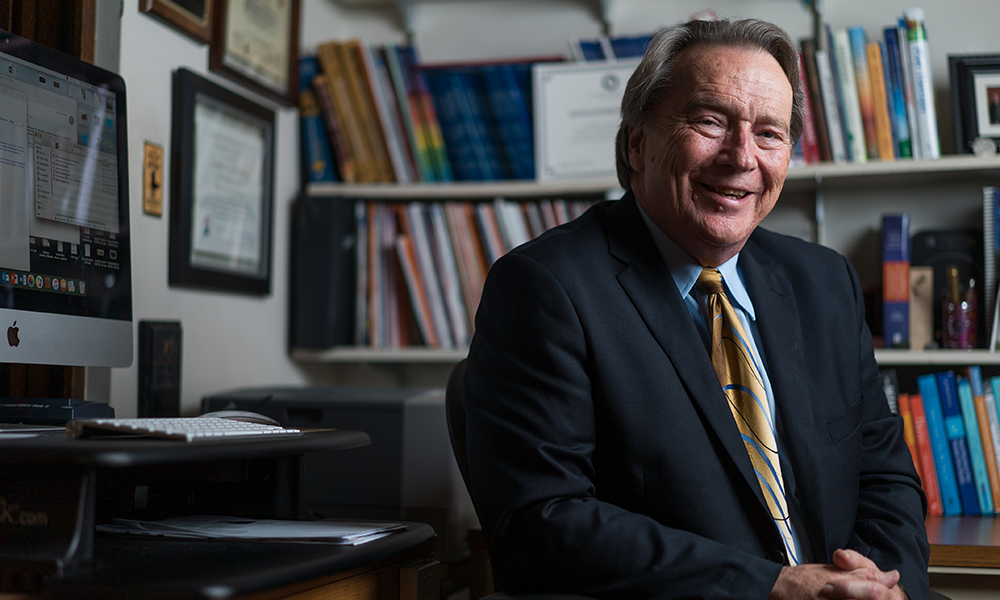Battling hopelessness in Hurricane Dorian's aftermath is key
News
The photos from the Bahamas and other places ravaged by Hurricane Dorian are heart wrenching, as are the stories of loss being told by the survivors. While the physical trauma is easy to spot, other types of trauma are not so visible, says JMU Graduate Psychology Professor Lennie Echterling, whose research areas include trauma and disasters, counselor education, resilience and positive psychology.
"The other issue here is that the support system is down too," Echterling said, noting that communities have been wiped out. "The social and psychological infrastructure is one of the first things that needs rebuilding."
When Echterling trains first responders, he emphasizes the importance of listening to the survivors. "Stories have to have an audience," he said, noting that story telling helps people rebuild their lives and provides hope for the future.
Echterling said the first responders need support too. In a disaster as large as that created by Dorian, first responders can often feel like their efforts lack impact.
"Although the community trauma itself is terrifying and overwhelming for many members, it is just the beginning of a long series of problems," he said. "In their efforts to face and meet the needs of their traumatized community, first responders are themselves affected. As a result, the distinction between helper and victim becomes blurred. In a very real sense, a disaster affects everyone in a community."
Echterling has served as crisis counselor, consultant and trainer following many traumatic stress events, including tornadoes and floods throughout the United States; Hurricanes Katrina and Rita; the tsunami in India; the 9/11 attacks at the Pentagon; the shootings at Virginia Tech; and landmine explosions in the Middle East. His books include "Crisis Intervention: Building Resilience in Troubled Times" and “Thriving.” His awards include James Madison University’s Distinguished Faculty Award, Virginia Counselors Association’s Humanitarian Award, Virginia’s Outstanding Faculty Award, Virginia Counselors Career Service Award, and the national Counseling Vision and Innovation Award.
To schedule an interview, contact Eric Gorton at gortonej@jmu.edu or 540-908-1760.
# # #
